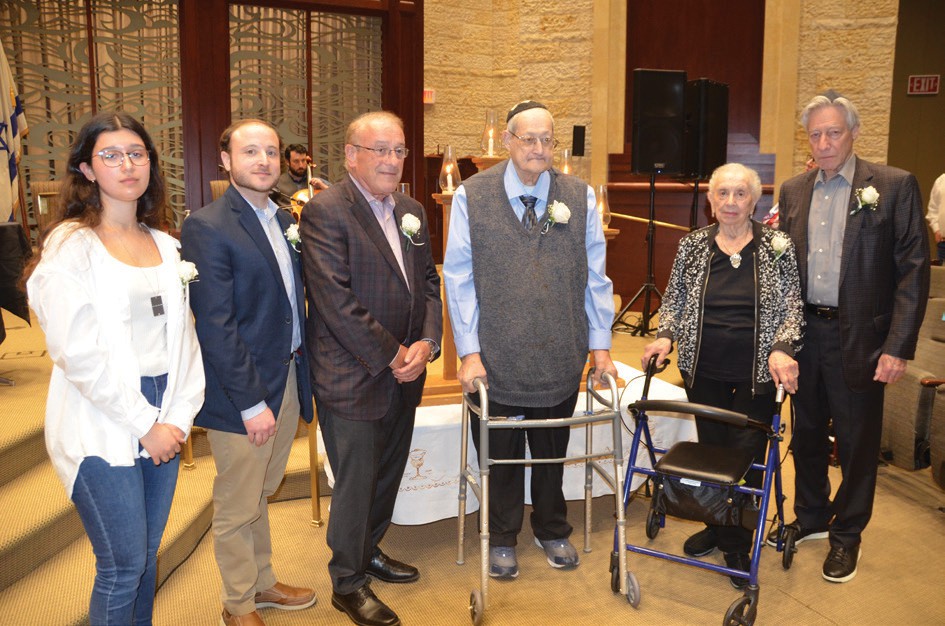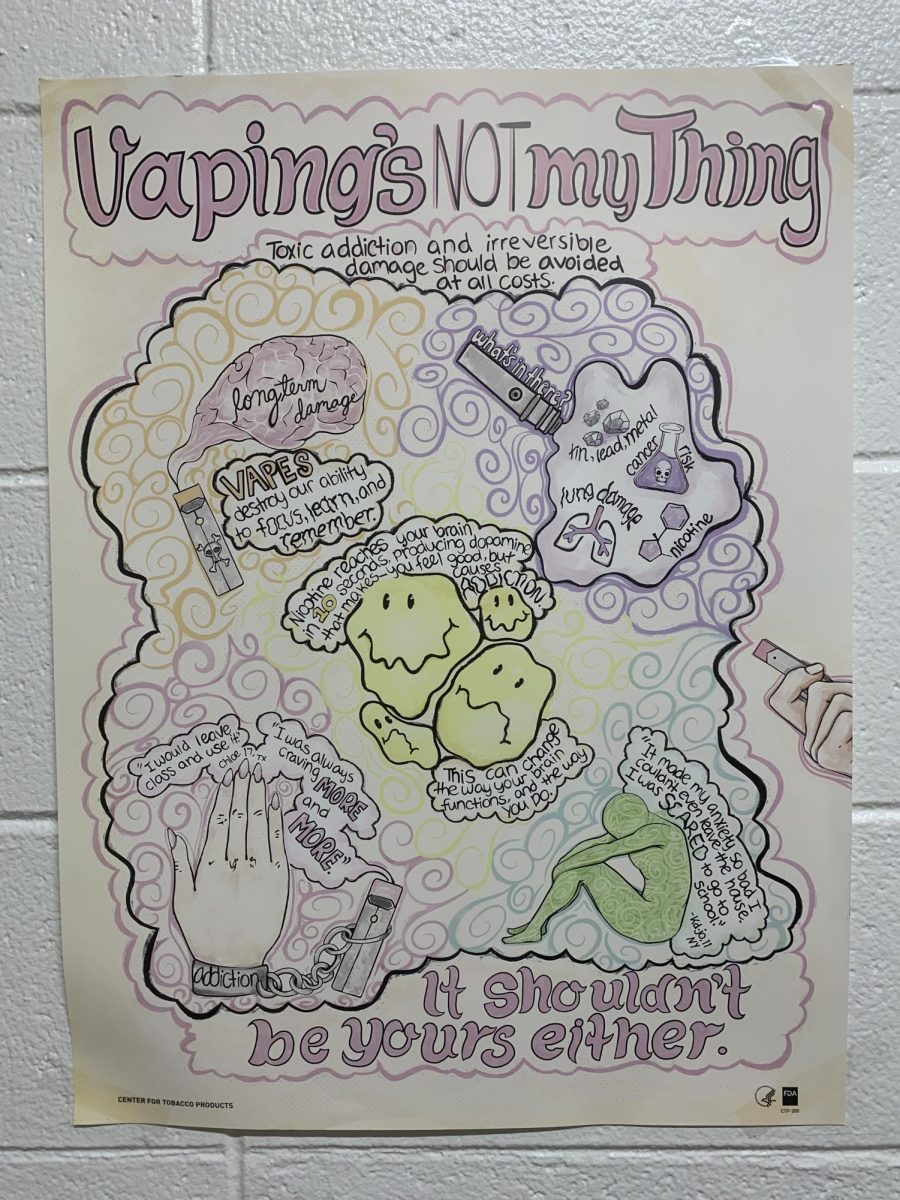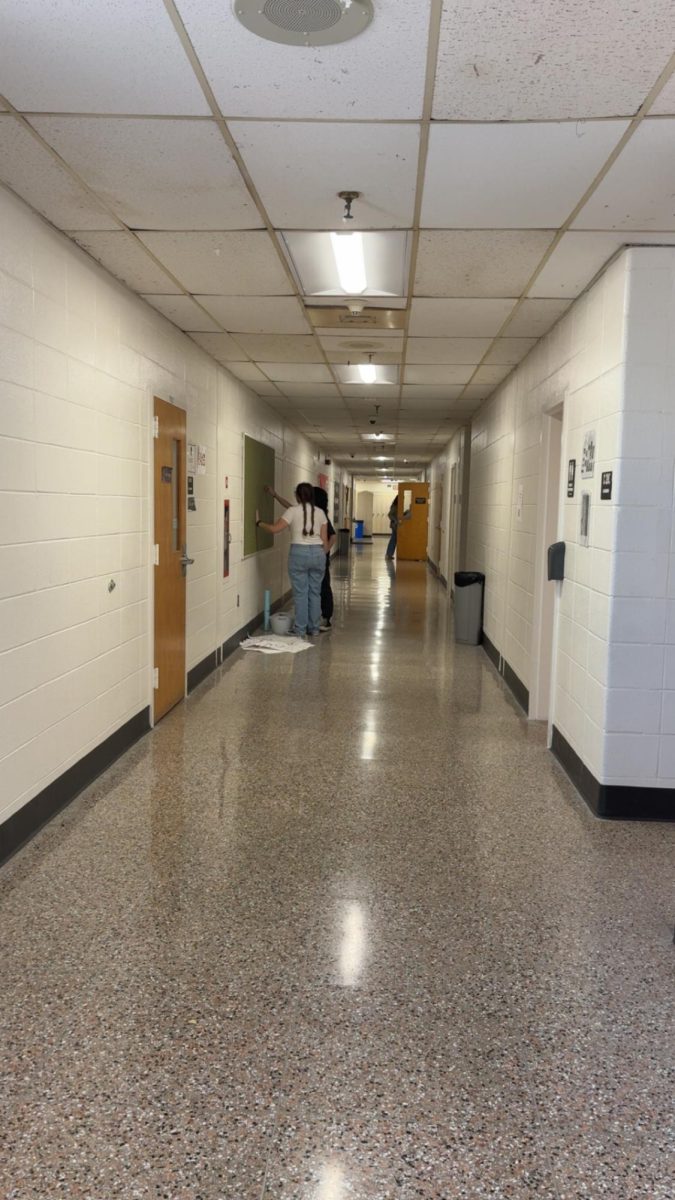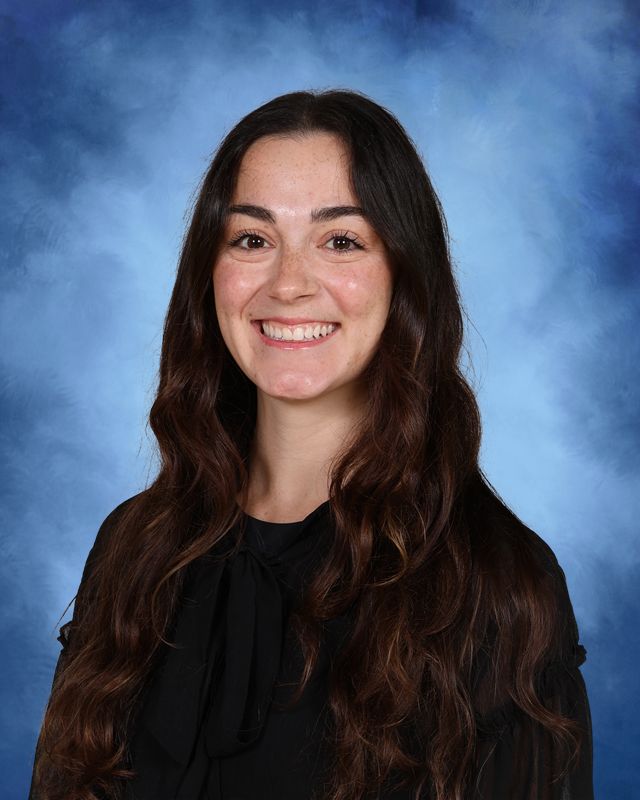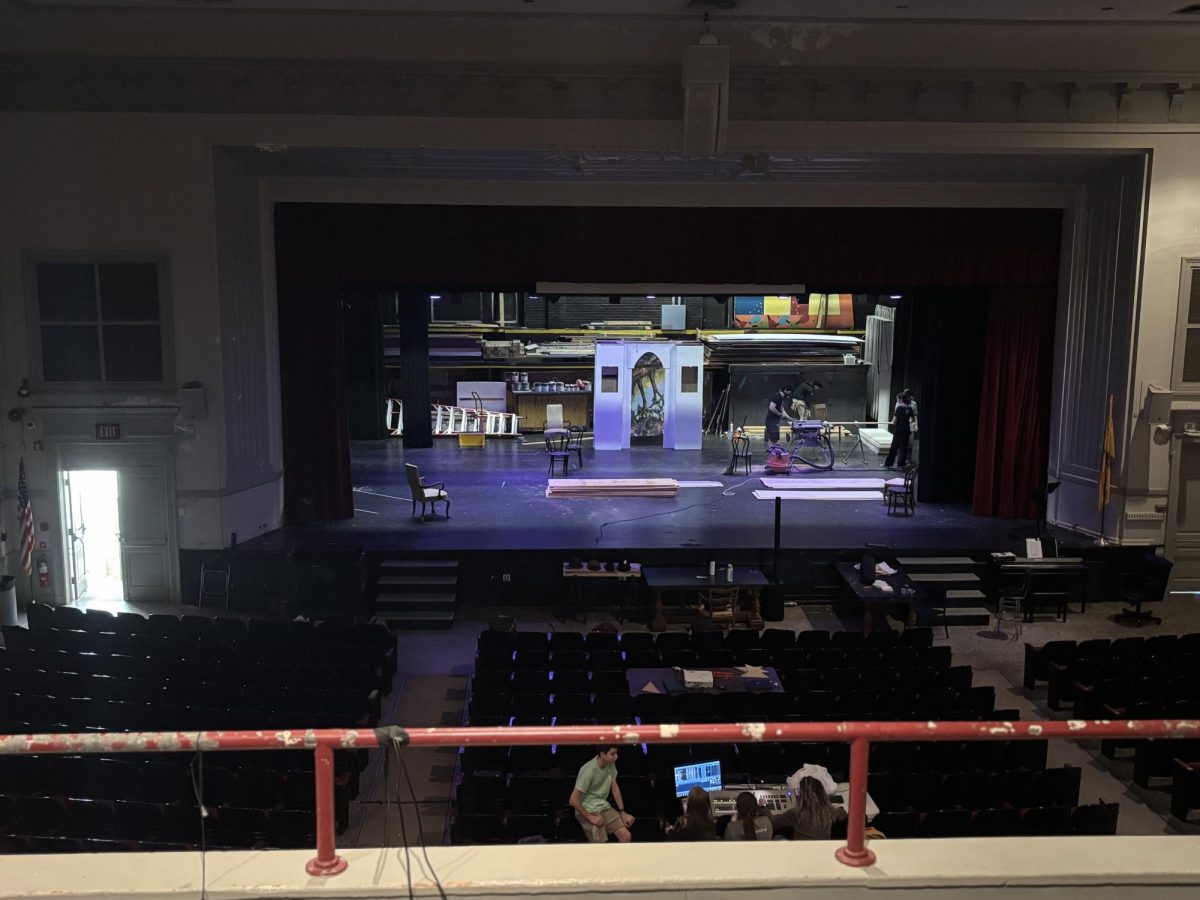On May 21st, 2024, a massive project from the German program came to its culmination when guest speaker, Joel Fabian, visited HMHS. What started as an effort to translate the Fabian family letters from German to English, turned into a lesson on the Holocaust and specifically, the story of one man, his family, and the perseverance it took to survive.
Mr. Fabian was born in 1939 in Berlin, Germany–the center of Hitler’s Third Reich. Come 1943, Mr. Fabian’s whole family–comprised of Mr. Fabian, his parents, and his two younger sisters (one of whom was born that very same year)–was sent to the concentration camp, Terezin. About Terezin, Mr. Fabian explains, “Theresienstadt [Terezin] was known as…the model camp. In fact, it was the only camp that was ever visited by the International Red Cross. It also was the only camp that was ever filmed.” By this, Mr. Fabian meant that when the Red Cross investigated Terezin, the Nazis cleaned three blocks of the camp to hide the actual horror of life within, executing any prisoner afterwards who did not behave as instructed. “The children of Theresienstadt had things in common: One, they were always scared…In the winter they were cold, in the summer they were hot…They never had anything enough to eat. And you didn’t make friends,” remarked Mr. Fabian, describing what it was like as a young child in this setting, “The person you made a friend with today would be deported the next day.” Mr. Fabian was not exaggerating; of the 15,000 children that came to Terezin, only 130 remained by the time the Russians liberated the camp.
Mr. Fabian’s family faced an even greater horror when their names (except for his father, who the Nazis forcibly employed as a lawyer to edit laws that “favored” Jews) were placed on the transport list for Auschwitz, a death camp where few were permitted survival. Thanks to a rabbi by the name of Leo Beck, the Fabians were able to escape getting on the train to Auschwitz, and were smuggled back into Terezin in a laundry basket. “Now I gave this story somewhere in Pennsylvania…and one young man raised his hand…and said, ‘Mr. Fabian, how did you fit in a laundry basket?’” recalled Mr. Fabian, reaching for his binder, “Well, luckily I found a picture of just that type of laundry basket. This is the laundry basket. As you can see it’s quite large and can hide people in the bottom.”
Mr. Fabian was liberated from Terezin when he was only seven years old, where he was then diagnosed with tuberculosis. For this reason, he was sent for treatment in Switzerland while his family remained in Berlin. The letters translated by the German IV students were between his family members during the time when he was away, so, according to Mr. Fabian, they will “fill some gaps” in his family’s timeline.
After three years, the Fabian family’s future looked a lot brighter. They moved to the United States, where Mr. Fabian and his sisters were immediately enrolled in school. “I became the best cusser in school, because cuss words are easy to pick up!” joked Mr. Fabian, in describing his experience learning English, “So my father would sit us down at dinner and say, alright what did you learn? And my sisters would come out with all these wonderful things and he got to me and said what did you learn, and I started cussing!” From these humorous beginnings, Mr. Fabian went on to serve in the United States military, and has, for the past twenty years, been working with various historians to uncover his family’s story, and the extent of what occurred to them during the Holocaust. From this research, Mr. Fabian has acquired his original star (the emblem Nazis forced Jews to wear as identification) and his family’s deportation notice.
When asked why he decided to share his story, Mr. Fabian had a quick, definitive response: Because of this firm belief, Mr. Fabian has visited countless schools across America to inform students on the events of the Holocaust, and offer perspective where possible. The event ended with Mr. Fabian’s reception of the translated letters, for which he expressed much gratitude.

